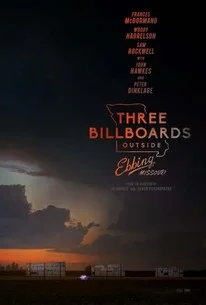Crime Stories
One thing I learned when I covered courts in the late 1980s was that the after-effects of violent crimes are often brutal and linger for years. Sometimes forever.
Ordinary, decent people are changed. Some live in fear. Others in profound sadness.
It was something I’d never before considered. But I witnessed it over and over.
During the time that I covered four capital murder trials and scores of other violent cases, I saw victims and family members who suffered from something that looked a lot like PTSD. Children lost parents, marriages were under stress, and good people were suddenly filled with rage.
On occasion, I talked with rational, law-abiding folks who seemed shocked to find themselves fantasizing about revenge as they watched perps trying to game the system.
“I’d never do it, of course...” they’d tell me, their voices trailing off.
And they wouldn’t. But life would never be the same for them.
Anyone who’s spent time with the family of a missing teenager who was likely kidnapped and killed years ago and whose attackers were never charged, has met parents and siblings living with unquenchable sadness.
And anyone who’s ever sat in a courtroom beside the family of a dead woman as her killer postured, preened, and performed could see that the murderer didn’t just take one life. He stomped on the hearts of an entire family.
Every violent crime leaves some degree of human wreckage.
Which brings us to “Three Billboards outside Ebbing, Missouri.” It’s the first film I’ve ever watched that attempted to capture the after effects of a grisly murder on a victim’s family.
Be warned. That theme doesn’t necessarily make for great entertainment.
I stumbled on this movie last weekend. I knew nothing about it, other than it starred two of my favorite actors, Frances McDormand and Woody Harrelson. Oh, and it was described as a “dark comedy.”
Fun.
But anyone looking for levity will be disappointed. Same goes for viewers who seek likable characters.
“Three Billboards” is unblinkingly grim and violent. Almost all of the characters - especially a grieving mother - are unredeemable until the director throws out a glimmer of hope in the closing moments. Too late, almost.
Essentially, the film tells the story of the single mother of a teenaged girl who was brutally raped, murdered and set on fire. Months after the crime, there have been no arrests. So an embittered Mildred Hayes, played by Frances McDormand, rents three abandoned billboards on a country road and posts a stark, taunting message to the town’s beloved sheriff.
Those billboards trigger an outburst of bizarre violence.
This isn’t Christmas fare, but it’s an important movie. For all its bleakness and shocking exaggeration, it’s a reminder that violent crimes are like stones tossed into a placid pond.
The ripples go on forever.
WARNING: if profanity offends you, DO NOT CLICK.


